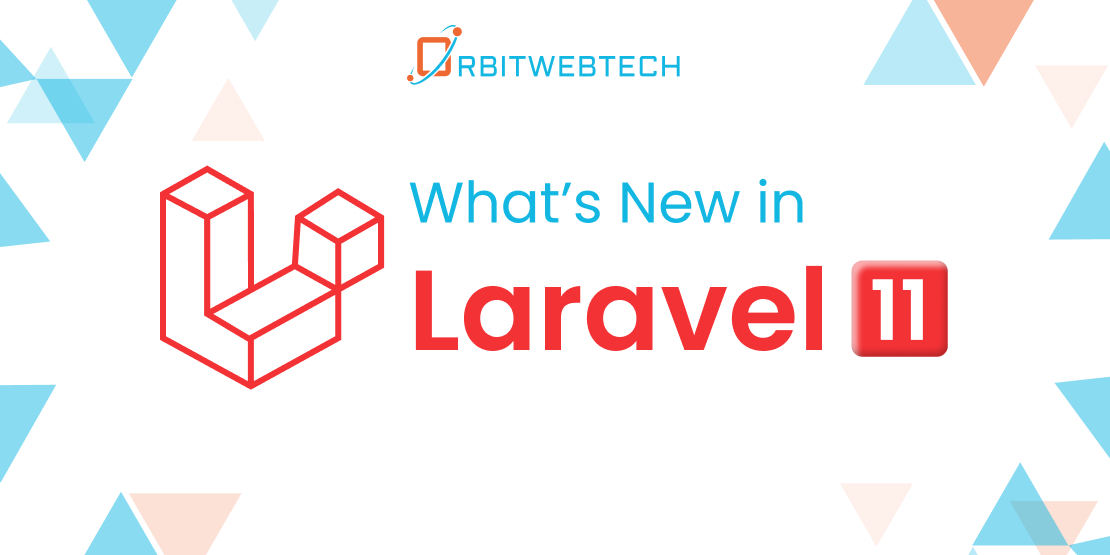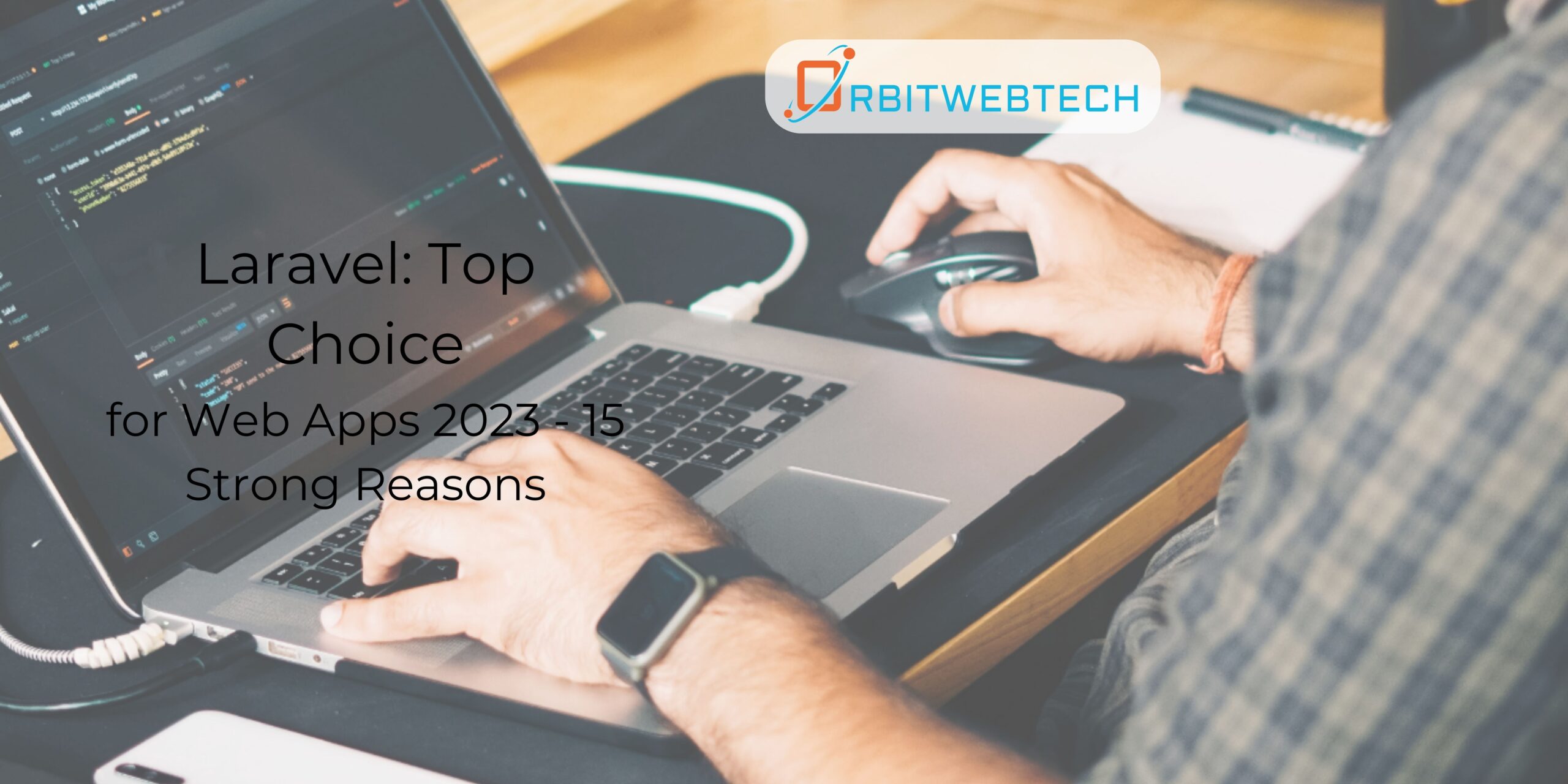
Laravel for enterprise applications: Simplify your enterprise app development process with the best choice for efficiency and scalability. This entails selecting an appropriate technology stack, delineating the project’s scope, organizing the team, and overseeing the development and testing phases, among other factors.
Selecting a technology stack can be a challenging aspect when embarking on enterprise application development. Rest assured, you are not alone in this dilemma, as numerous enterprises encounter a similar situation.
Laravel excels in seamlessly navigating through intricate challenges with its rich set of features and remarkable adaptability. This is precisely why we regard Laravel as the perfect framework for crafting enterprise-level applications.
Here, we will explore the myriad advantages of utilizing Laravel for enterprise-level applications, along with its potential to revolutionize your development workflow.
An Overview of Enterprise Application Development
Laravel, a PHP framework founded by Taylor Otwell in 2011, is an open-source platform designed following the Model-View-Controller (MVC) architectural pattern.
In recent years, one PHP framework has seen a remarkable surge in popularity. It provides a comprehensive array of features and tools specifically crafted to streamline the development of enterprise applications.
Its simplicity, elegance, and extensive documentation enable developers to quickly start building scalable yet maintainable apps.
Laravel offers features like MVC architecture, Eloquent ORM, Blade templating engine, and a robust testing framework that make it an ideal platform for enterprise applications.
Laravel is an excellent choice for a wide range of applications, including developing intricate business processes, handling extensive datasets, and implementing finely-tuned access control settings for individual access points. This flexible framework empowers developers to create robust and efficient enterprise applications.
Laravel Market Size Statistics
The market size of Laravel is evident, and it stands out as a promising technology, boasting a market share of 35.87%.
Here are 8 essential traits that define the Laravel PHP framework
Let’s explore some of the essential characteristics that render Laravel a compelling option for the development of enterprise applications.
MVC Architecture
Laravel adheres to the MVC architectural pattern, which divides application logic into three distinct components: Model, View, and Controller. This segregation promotes improved code organization and maintenance, thereby enhancing scalability.
The model is responsible for managing data and business logic, while the view takes care of the presentation layer specifics. Meanwhile, the controller serves as a bridge connecting the model and view components.
Blade Templating Engine
Laravel’s Blade templating engine is a powerful tool for separating presentation logic from application logic. It offers an expressive syntax that simplifies the creation of reusable and modular templates, providing an effective means of isolating these two aspects.
Blade offers various functionalities, such as template inheritance, sections, and components, that empower developers to create interactive and dynamic user interfaces.
Eloquent ORM
Laravel’s Eloquent, a robust Object-Relational Mapping (ORM) system, simplifies database operations with its expressive query syntax, making it an intuitive and powerful tool for database queries.
Eloquent empowers developers to efficiently interact with database tables using PHP objects, enhancing productivity for tasks like Create, Read, Update, and Delete operations, while also simplifying the management of relationships between entities.
Routing
Laravel’s routing system simplifies the process of defining and managing HTTP routes for developers, offering an intuitive syntax for route definition. Additionally, Laravel incorporates caching technology that optimizes application performance by reducing the overhead associated with route registration.
Caching
Laravel’s adaptable caching system simplifies the process of storing frequently accessed data in a range of caching stores like Redis or Memcached. This streamlines database operations, resulting in faster data retrieval times. Laravel offers an intuitive API that enhances the implementation of caching strategies in enterprise applications, making it more straightforward for developers.
Authentication and Authorization
Laravel includes a comprehensive authentication and authorization system by default, encompassing functionalities such as user registration, login, password recovery, and email verification. This versatile authentication framework allows developers to tailor their authentication processes to suit the specific requirements of enterprise applications with Laravel’s support.
Moreover, it provides convenient methods for managing roles and permissions, streamlining the implementation of intricate access control compared to conventional methods.
Queues and Job Scheduling
Laravel offers developers a sophisticated queuing system that empowers them to delegate resource-intensive tasks to background workers. This enhances application responsiveness and facilitates the seamless management of asynchronous processes.
Laravel’s Queuing System offers extensive support for multiple queue drivers, including options like Redis, Beanstalk, and Amazon SQS. This diverse driver selection enhances the system’s scalability and flexibility. Furthermore, the task scheduler provided by Laravel is instrumental in facilitating the scheduling of recurring tasks and automating job execution, thereby bolstering the efficiency of enterprise applications.
Testing
Laravel’s testing framework offers a user-friendly and powerful solution for simplifying the creation of automated tests for applications. It provides a comprehensive suite of tools and testing methods for evaluating different aspects of your application, including unit tests, integration tests, and browser tests. This framework actively promotes the development of code that is both testable and maintainable, ensuring the high quality and reliability of enterprise applications.
6 Reasons Why Laravel Stands Out as the Optimal Choice for Enterprise Application Development
Continuing to contemplate the choice of Laravel? The following factors can assist in providing reasons for your decision:
Rapid Application Development
Laravel offers developers an efficient development process that expedites the creation of enterprise applications. Its expressive syntax and comprehensive libraries streamline the writing of clean code, reducing the overall development time and effort. In a survey conducted by SitePoint, respondents overwhelmingly selected Laravel as their preferred PHP framework for its ability to accelerate app development, with 58% choosing it as their top choice.
Robust Security Features
Laravel provides robust defenses against common security threats such as cross-site scripting (XSS), cross-site request forgery (CSRF), and SQL injection attacks, making security a top priority in the development process.
With features like password hashing encryption and two-factor authentication, Laravel ensures that its operations are executed with a strong focus on security.
Scalability
Enterprise applications often need to cater to substantial user bases and handle substantial traffic loads, making Laravel a compelling option for meeting these demands. Laravel offers support for horizontal scaling, allowing developers to distribute applications across multiple servers when required. It also offers features like caching, database replication, and load balancing, all of which contribute to ensuring optimal performance, even when dealing with high loads.
Integrating Third-Party Services
Enterprise applications often require seamless integrations with a variety of third-party services, including payment gateways, cloud storage platforms, and email providers. Laravel simplifies the integration process by providing a robust API along with prebuilt libraries tailored to popular services. A prime example of this is Laravel Cashier, a library that facilitates smooth connections with payment gateways such as Stripe and Braintree.
Robust ORM
Laravel’s ORM (Object-Relational Mapping), known as Eloquent, simplifies database management. It provides a user-friendly syntax for interacting with databases, eliminating the need for manual, intricate SQL query writing. Eloquent seamlessly accommodates various database systems, streamlining data manipulation and retrieval processes.
Community Support
Laravel boasts a thriving developer community as one of its primary strengths. This dedicated group consistently makes valuable contributions, such as crafting packages, creating tutorials, offering assistance on forums, and proposing solutions to frequently encountered development challenges. These collective efforts significantly enhance the speed and simplicity of the development process.
Discover the 11 Advantages of Opting for Laravel Instead of Any Other Framework
The Laravel framework offers a unique set of advantages when compared to alternative solutions, which include.
MVC Architecture
Laravel adopts the MVC (Model-View-Controller) architectural pattern to enhance the management and reusability of code in complex applications. This separation of application logic from presentation streamlines the process of handling intricate applications, resulting in better code organization and improved code reuse.
Powerful and Elegant Syntax
Laravel offers a user-friendly and elegant syntax, facilitating code that is both easy to read and write. It boasts expressive features that empower developers to create code that is highly readable and maintainable, ultimately leading to reduced development times and fewer bugs.
Robust Routing System
Laravel’s robust routing system enables developers to create SEO-friendly URLs with ease, while caching improves performance by reducing route resolution time.
Built-in Authentication and Authorization
Laravel boasts a robust authentication and authorization system that simplifies the implementation of user registration, login, and password reset functionalities. Additionally, Laravel offers a powerful authorization framework, allowing developers to define fine-grained access control rules based on roles and permissions for enhanced control.
Migrated Database and Seeded Creation Processes
Laravel’s database migration feature provides developers with a robust solution for managing and versioning database schema modifications.
Streamline application development and testing with seamless schema change deployment and test data seeding.
Eloquent ORM
Laravel’s Eloquent ORM (Object-Relational Mapping) empowers developers to seamlessly interact with a database through a user-friendly and intuitive syntax. Its versatile query builder and built-in support for table relationships simplify the handling of intricate data structures with ease.
Blade Templating Engine
Laravel’s Blade templating engine offers an efficient and straightforward approach to separating presentation logic from application logic.
This empowers developers to construct dynamic web pages with capabilities such as inheritance and control structures, facilitating seamless page creation and responsive design.
Artisan CLI (Command Line Interface)
Laravel’s Artisan CLI is a crucial resource for optimizing routine development tasks effortlessly, such as code generation, migration execution, and cache management.
Testing Support
PHPUnit is a popular tool for conducting unit tests, and it comes equipped with a versatile API for testing. In contrast, Laravel’s testing framework seamlessly integrates with PHPUnit and simplifies the process of writing unit tests. It provides an intuitive and user-friendly API specifically designed for conducting HTTP request and response tests.
Community Support
Laravel benefits from a dedicated community of developers who actively participate in its ongoing development and provide support via forums, chat rooms, and tutorials.
Ensuring Laravel stays in sync with current web development trends and industry standards, this dynamic network is pivotal.
Error and Exception Handling
Laravel boasts an exceptional error and exception handling system that simplifies the process of detecting and resolving errors within your application. It offers comprehensive error messages, extensive logging functionality, and the ability to personalize error pages. This streamlines the error identification and resolution process, benefiting both debugging experts and developers in enhancing their problem-solving efficiency.
Final Thoughts
Laravel is a highly valuable framework for the development of enterprise applications. Laravel for enterprise applications delivers unmatched scalability, security, and performance. Choose Laravel for powerful, efficient software solutions.
Leverage Laravel for enterprise application development – the ultimate choice. Streamline processes with its refined syntax, extensive libraries, and vibrant community support. Simplify application creation, from development to maintenance.
Absolutely, Laravel stands out as the premier choice for enterprise application development, offering unparalleled features and adaptability.
If your organization requires robust web-based solutions for automating business processes, Orbitwebtech offers a comprehensive solution with extensive expertise in developing scalable enterprise solutions. Don’t hesitate to reach out to us, and one of our consultants will promptly respond to initiate a discussion about your project concept.


